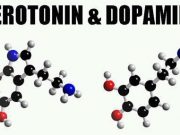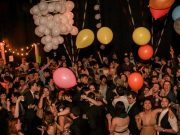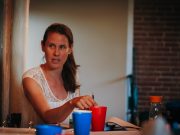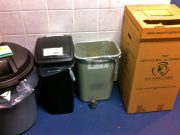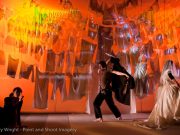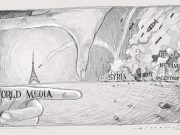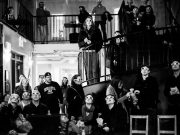An open letter to a community enraptured by open letters
Theatre, live performance, whatever it is we do, is like a village square. To extend the metaphor – an open letter is a fortress. It conceptualizes its statement and works to create barriers – or castle walls – to any disagreement. I don’t want to come to your castle to be lectured at – it’s pointy and cold. I’d rather live in the village square. And the reason? Because there, we talk.
Good and Never Good Enough
I grew up in a theatre that ignores people of colour, people with lived experience of disability and who live with labels or diagnoses. A theatre that minimizes or erases the narratives of people integral to the communities they call home. And then, for me, the hardest part of all: that despite 17 years of New Years resolutions, I still didn’t know how to be ‘good’.
You are not special
The world has become a funnel. Unless we approach our work and thoughts like the hermetic Unabomber then we will constantly discover how un-special we are... So what is my brilliant friend to do when I know they are brilliant but they discover that they are not brilliant enough to be first?
A watershed for discussion
As Annabel’s inquiry into water transmutes into an exposé of the deadlock we’ve reached between economic growth and environmental stewardship, it becomes clear that representing a range of viewpoints on this subject is going to be difficult, if not impossible. Both Annabel the writer and Annabel the character grapple with the devastating realization that whereas not all that long ago environmentalism was a bipartisan value, it has now become a divisive, even dirty word, in some circles.
Working with Generation Hot
This puts me in the awkward position of placing a goal on my artistic practice beyond ‘make good art.’ Awkward because art itself is not advocacy. To me, it becomes some other thing when the message is overt, the intention to persuade. Good art doesn’t tell people how to think or feel. It can invite us to think and feel for ourselves, into the darker corners, and past what we believe is possible. Like death, climate change is one of those big subjects that art can help us make emotional sense of, linking it to our own lives in a meaningful way.
Making change, one light bulb at a time
It’s been 2 ½ years since PTC moved into its current site, and created a theatre centre out of an abandoned pork roastery in Vancouver’s Chinatown. We’ve tried to implement green policies through our transition to this space, and in every day operations. We couldn’t afford a lot of high-end eco-products, so we have taken the “reduce and reuse” principles of the three R’s to heart.
Theatre in the Time of ISIS
I guess theatre could be relevant in response to global crises after all. It could be relevant once we start looking at our organizations as community support agencies in the first place; once we start seeing that our primary function is making community and art is the result; once we understand that art is only valuable when it is done in the service of people and not the other way around.
The “theatre community’s” response to the “refugee crisis”
I’m advocating a bigger, scarier form of imagination, the kind that brings us closer to ourselves – the precursor of seeing things as they really are. Because while the condition of being a human on earth is a condition we share with any other human that currently resides on earth, and while the spectrum of emotions we can experience are limited, the specificity of our experiences are not, even as they are generated through the same structures.
Could we do it? Part II
Our next challenge by extension is to find a more inclusive approach to our art. Is it possible that we could create theatre, music, dance and visual art that could include refugee artists at the ground level? International collaboration is not new to the Canadian arts scene and we may now have more of those available to us now than a generation ago. Could we actively recruit and seek out fellow artists from this specific community after they have landed on our shores? Could we create pieces with the flexibility to include another language, culture, world-view, training, instruments and traditions?
Exporting Nova Scotia
We are now in a moment when Nova Scotia is seeking to redefine the roles artists by exploring forms that are not fixed in government, but instead take root in principles of production and distribution, which are more economically driven. The inherent danger is cultivating a practice for the sake of consumption. The crucial issue is the manner in which art is commodified and how that changes the art and culture of this place. Could we be looking at the de-artificiation of art, or an industry that cheats its consumers of what it promises?






